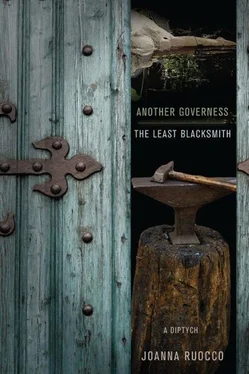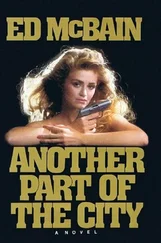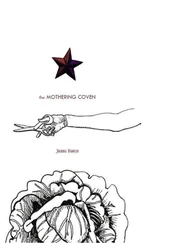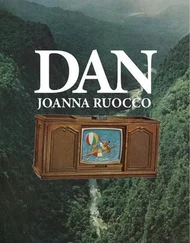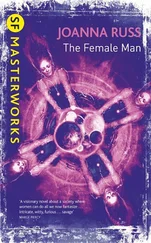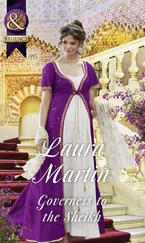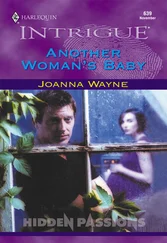On the desks, the books are black. The spines are black. The covers are black. I open the books. Inside, I see black. The children have ripped the pages from the books. I lift a book by its spine. The covers tap together. I make the edges of the covers tap together. The book has black jaws. I laugh. How will the children read the books? I nip Tamworth's arm with the book. I nip her shoulder. I nip Tamworth's nose with the book. She laughs. She knocks the book from my hands. The jaws fall open. The Master's dogs have black, speckled gums. The Master's dogs are old. Their teeth are worn low in their gums. The Master's dogs have stiffened in their hips. Their back legs are stiff when they run. The Master's dogs make their mess in the orchard. They cannot crouch. They make their mess like cows in the field. They lift their tails. They run through the orchard, their mess falling behind. Their mess is yellow fluids. I could not wipe it from the apples. The skins on the apples are cracked. The fluids seeped beneath the skins. The Master's dogs leak fluid in the house. The Master lets his dogs in every room of the house. The nursery door is locked from the outside. The dogs inside the nursery have been inside for a very long time. The children have scattered the piles of hair.
There are two chairs in the nursery. The children sit on the chairs. I sit on the rocking horse. The rocking horse creaks. I am very slim, but it creaks. Dust falls from the withers. Nits rise from the withers. I sit astride the rocking horse. The saddle is hard. I tighten my legs. The saddle rubs. It hurts. I lean forward and back. I make the rocking horse creak. The hips have stiffened. The hips creak. The legs are very straight. Nits swarm around the nostrils of the rocking horse. Nits lay their eggs in the nostrils. They crawl between the lips. Tamworth feeds the rocking horse cake. She crumbles cakes in her palm and presses her palm on the lips. She fills the gouge between the lips with cake. She fills the nostrils with cake. Now mess, says Tamworth. She puts her mouth by the ear. Mess, says Tamworth. Nits settle on her cheeks and she slaps the nits. Her cheeks blotch. She tugs the mane with her fist. She slaps the neck. She slaps my leg. Make him mess, says Tamworth. She puts her hand on my neck. She pulls my dress. She tries to sit astride the horse. I push her back. Mess, says Tamworth. She slaps the haunch of the rocking horse. She lifts the tail of the rocking horse. I stand up and the rocking horse rocks forward and back. The withers bump my sex. It hurts. Blood is running through Tamworth's mouth where the hindquarters pushed her lips against her teeth.
The children eat and mess. The dogs eat and mess. The Master eats. He messes. There are pails for the Master's messes all through the house. Only the rocking horse does not mess. The food stays in the mouth and nostrils of the rocking horse. It greens. It hatches nits. In the kitchen, the cook takes meat from the hooks. The cook shaves the coating that forms on the meat, the green coating that forms on the meat. On the hooks, the meat grows boils. It buzzes. The cook digs out the boils with a very thin knife. She chews a sprig of fresh mint. She rubs mint on the meat. She freshens the meat. The Master likes the fresh meat. In a grand house, the Master eats meat every day. He eats meat from white plates. That is mint jelly on the meat. It is fresh. There is a white pot of sugar. He sugars the meat. No, he sugars the tea. He likes the tea very sweet, very sweet and white with fresh milk. The brown tea turns white. The children eat cakes in the nursery. They grow. They need to eat and eat. They eat. They drink milk. They make their mess. They eat. They mess. They are good children. They tear the pages from the books. They use the pages to clean what remains of their mess. They clean their bodies from what remains of their mess. They clean their bodies. Spot is a man. He can clean his own body. The torn pages of the books are crumpled in the corners. Spot is not like a pig. He is not like a dog. He is good and clean. He is like the Master. I see now that he is like the Master, very like the Master. He belongs in the grand house. Tamworth is not like the Master. She must be like the Mistress, red and fat like the Mistress. There is no Mistress. I would know if there were a Mistress, a red, fat Mistress. A Mistress does not tolerate offal on the staircase, flies and hornets on the staircase. She does not tolerate boils on the meat. The Mistress has gone away from the house. She is buried beneath the tree in the garden by the house. She is buried too deep to come up. The dogs cannot reach her.
Where is your globe? says Spot. Yes, says Tamworth. Her jaws move slowly. A cake rests in her mouth. She lets her jaws hang. Spot's face is moist. Spot stands. He is very large. His legs quiver. The fabric of his trousers is too thin. I see the shapes beneath the fabric and the stains on the surface of the fabric. Tamworth rubs the redness of her lids and nose, the webs of veins that raise the skin on her lids and nose. It is not time for books, says Spot. It is time for globes. Spot's eyes are moist. They are brighter. He watches me closely. The Master is near. The Master is in the hall. He paces the hall. We hear him pass. We hear him pass. Spot jerks with each blow of the stick down the hall. He jerks. His legs quiver. He lifts his fat hand and pokes the dirty skin of his face. He pulls a white thread from the corner of his mouth. He puts the thread on his trousers. He watches me closely. He is standing. He is taller than I am. He is wider than I am. Your hair is black, says Spot. Today your hair is black. You have forgotten your globe. I turn my back on Tamworth and Spot. I face the door. I face the crib. I face the rocking horse. I want to sit down, but I will not sit on the rocking horse. I do not have a globe. I have a dress. I have a ribbon. I have stockings and shoes. The dress hangs on me. A button dangles. A globe is a map, says Spot. A round map. A map is flat. A flat map. Find the nursery on the map, I say. The nursery is not flat. It is not round. The nursery is neither flat nor round. The nursery is a shape, I say. Spot takes Tamworth by the neck. He drags her from the chair. He pushes an arm between her legs. He lifts and Tamworth twists. She hops. Spot drags her around the crib. He hits Tamworth's head on the leg of the crib. The crib does not move. A sound comes from the crib. A short sound. Above the crib there is a map. The map is on the wall. Spot has thrown food at the map. Tamworth has thrown food at the map. Porridge has wetted the map. White tea has wetted the map. I walk to the map. Where is the nursery? I say. Find the nursery on the map. The grand house is not on the map. The moat is not on the map. Where is the orchard? I say. Where is the forest? Where is the river? Where are the farmer's fields? Spot points to the map. He says the name of the town. He points to a spot on the map. He says the name of the town. No, I say. That is not the town. That is not the middle of the town, the hot middle of the town, the dusty middle of the town. I did not stand there, on that spot, in the town. The spot is wrong. There is no road on the map. There is no ditch on the map. There is no fire on the map, the fire where the bone boiler sets his pot, where the fat rises to the top of the pot. I skimmed the fat from the water in the pot. I ate the fat. The fat was fresh and hot with a good salt taste. The bone boiler struck me on the face with the flat of the knife. He struck my neck with the flat of the knife. I saw the knife turn over. I saw the flat of the knife. I saw the edge of the knife. I lifted my skirt. The ditch was deep. The river was high. I walked through the river. I held my skirt higher than the river. I slept in a malt barn. I slept in barley rushes on the floor of the malt barn. It smelled sweet. I could hear the bone boiler on the road. I could hear his dogs on the road. I put barley rushes between my legs. They prickled. I put barley rushes between my legs so the dogs would not smell me. I felt the prickle of the rushes. The light came through the cracks in the weatherboards. The sun rose. The light came through the weatherboards. It was cold in the malt barn and I drew my arms inside my dress and folded them tight against my body so my arms pressed against my breasts. I did not like the feel of my arms against my breasts. The dress is too big. It hangs on me. I can easily slip my arms inside. I draw my arms inside. I shut my eyes. I touch my breasts. I do not like the feel of my fingers on my breasts. Beneath the smell of the nursery, I smell the sweetness of the malt barn. I open my eyes. I look at the spot on the map. I touch the curded teats on my breasts. They lengthen. They prickle.
Читать дальше
